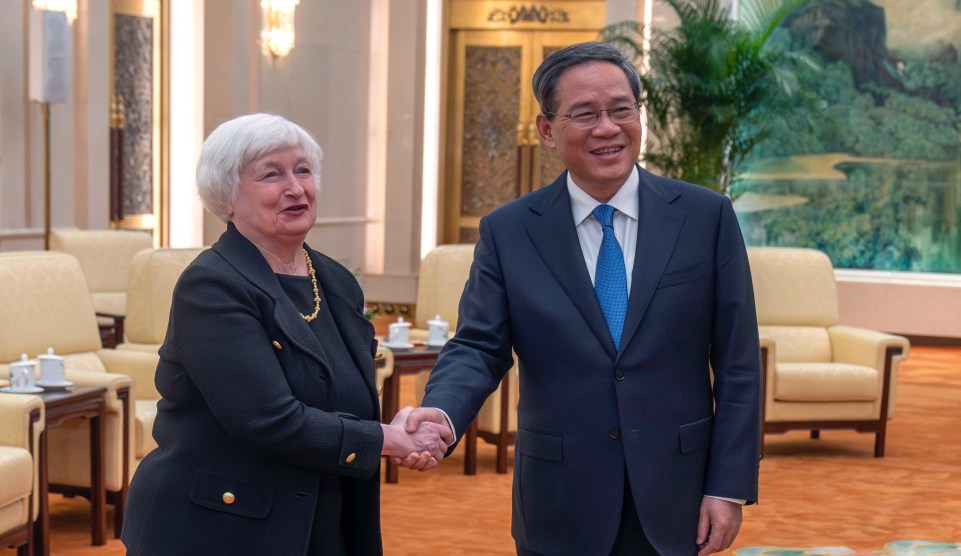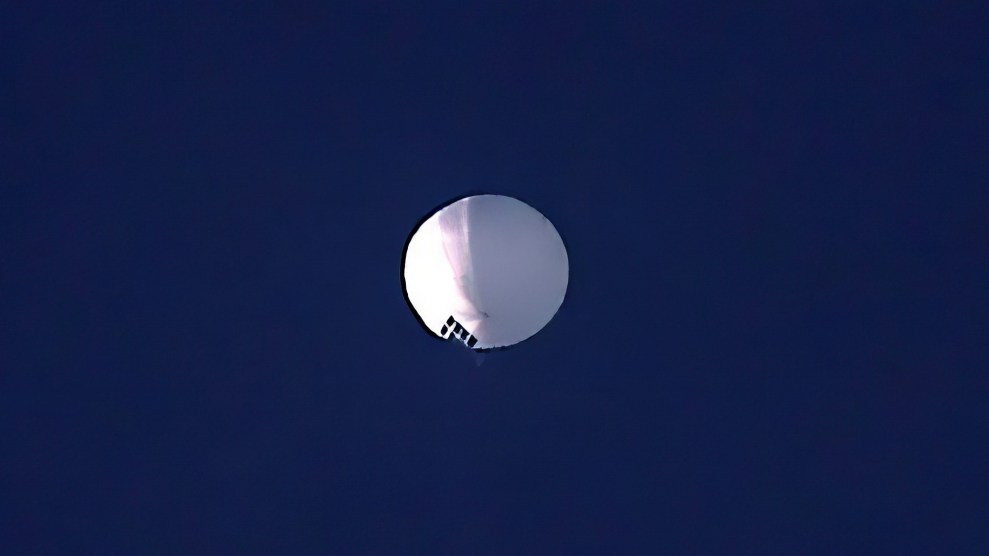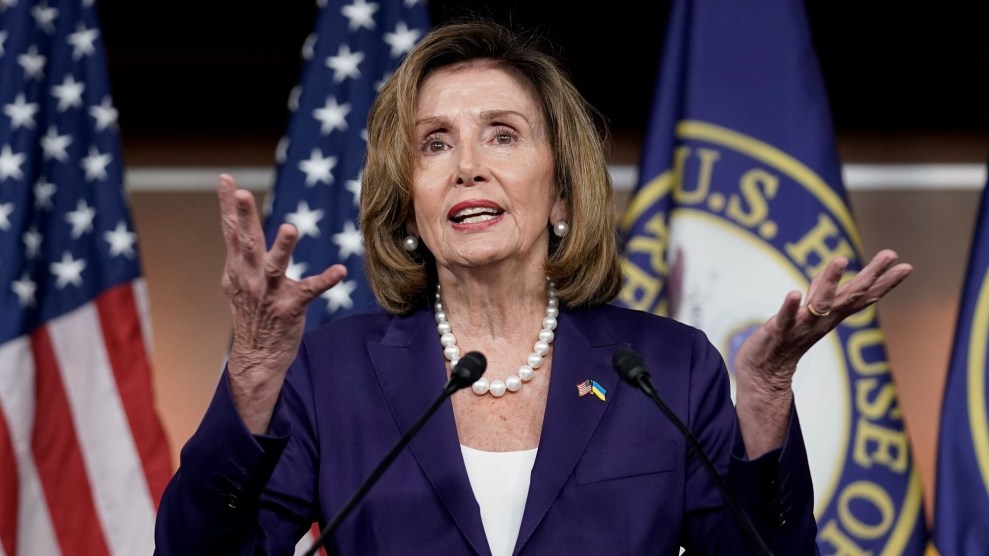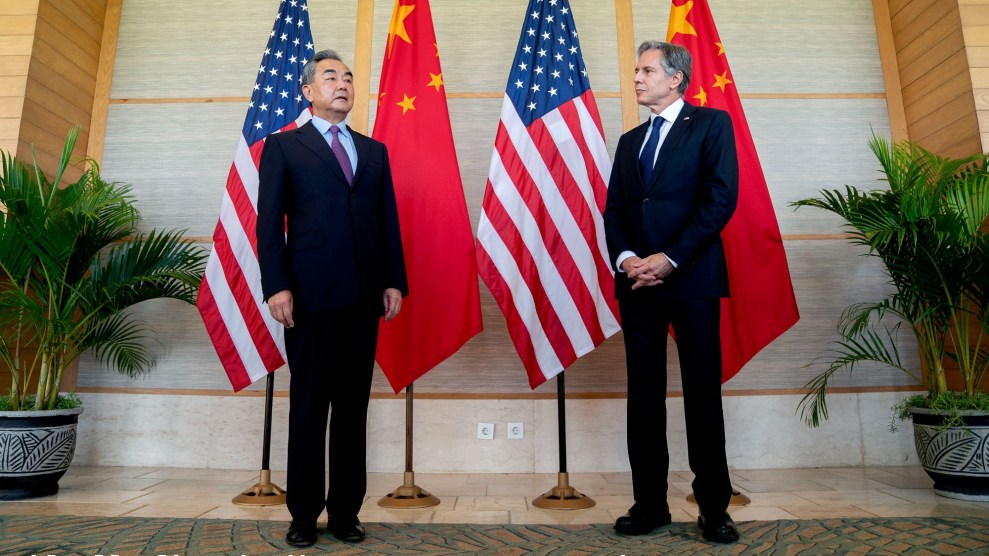
Chinese Premier Li Qiang greets Treasury Secretary Janet Yellen in Beijing on Friday.Mark Schiefelbein/EFE/Zuma
US-China relations have long been tenuous, and the last two years have been no exception. There was the US diplomatic boycott of Beijing’s 2022 Winter Olympics. In August, China fired ballistic missiles after Nancy Pelosi—at the time, the Speaker of the House—visited Taiwan. Then in October, the US Commerce Department placed sweeping restrictions on China importing US-made computer chips, arguing they might be used to “commit human rights abuses.” Of course, this February, the US shot down a Chinese-operated balloon because officials believed it was spying on sensitive military sites.
But in the last few days, senior US officials have taken great, public efforts to turn things around with China, which President Joe Biden previously said is on pace to become “the most significant, consequential nation in the world” under the leadership of Chinese President Xi Jinping.
Treasury Secretary Janet Yellen spent 10 hours in meetings with Chinese officials in Beijing over the course of two recent days. Despite what she called remaining “significant disagreements,” Yellen said she and her Chinese counterparts “believe that the world is big enough for both of our countries to thrive.”
Emerging from conversations she had with the second-ranking member in the Chinese Community Party, Premier Li Qiang; China’s economic chief Vice Premier He Lifeng; finance minister Liu Kun; and People’s Bank of China chief Pan Gongsheng, Yellen said she anticipates more regular contact between US officials and their Chinese counterparts.
Her trip follows a similar one undertaken a few weeks ago by Secretary of State Antony Blinken. Later in July, John Kerry, the special presidential envoy for climate change, is expected to make his own journey in an attempt to revive climate negotiations.
“No one visit will solve our challenges overnight. But I expect that this trip will help build a resilient and productive channel of communication with China’s new economic team,” Yellen said. “My hope is that we can move to a phase in our relationship where senior-level diplomacy is simply taken as a natural element of managing one of the world’s most consequential bilateral relationships.”
But Chinese officials statements seemed to express more hesitancy, and no new formal diplomatic agreement or communication schedule emerged from Yellen’s time in China.
During her trip, Xinhua, a state-run news source, released a report on her visit that expressed China’s opposition to the Biden Administrations continued trade restrictions. “China believes that generalizing national security is not conducive to normal economic and trade exchanges,” Xinhua wrote, according to the New York Times. “The Chinese side expressed concern about US sanctions and restrictive measures against China.”
Yellen reassured her hosts that the US would not do more to negatively impact the Chinese economy, which has been faltering in recent weeks, due in part to sluggish manufacturing, low consumer spending, and dwindling export numbers. She stressed that steps like the US’s limits on Chinese purchases of computer chips are, according to the Wall Street Journal, “narrowly focused.”
“I want to allay their fears that we would do something that would have broad-based impacts on the Chinese economy,” she said. “That’s not the case. That’s not the intention.”
In an interview aired by CNN on Sunday, Biden also mentioned room for China and the US to bolster diplomacy. “I think there is a way to resolve, to establish a working relationship with China that benefits them and us,” Biden said.
One thing that would definitely benefit them and us? Not having a nuclear exchange. In the interview, Biden sought to reassure Americans at the very least that the prospect seems off the table, saying that Xi Jinping acknowledges the concept of “nuclear war being a disaster.”

















